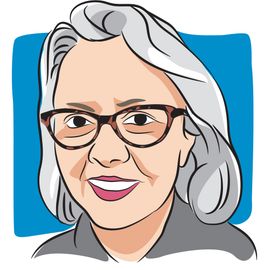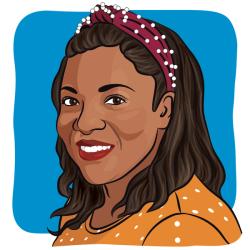- About
- Advertise / Support
- Contact
- CancerNetwork.com
- TargetedOnc.com
- OncLive.com
- OncNursingNews.com
- Terms & Conditions
- Privacy
- Do Not Sell My Information
© 2024 MJH Life Sciences™ and CURE - Oncology & Cancer News for Patients & Caregivers. All rights reserved.
When Fear Interferes with Cancer Survivorship, Savor Life!

Felicia Mitchell, retired from college teaching, is a poet and writer who makes her home in southwestern Virginia. She is a survivor of stage 2b HER2-positive breast cancer diagnosed in 2010. Website: www.feliciamitchell.net
Even a cancer survivor with an upbeat attitude can experience bittersweet blues sometimes out of the blue. There are ways to learn from this feeling, whatever we call it, and keep on going.
There is a feeling cancer survivors sometimes get when, despite how well life is going, something bittersweet bubbles up from the psyche. Joy and despair take up residence in the same room. What should I call that feeling?
In "Breakfast at Tiffany's," Truman Capote's character Holly Golightly gives name to a feeling of dread she gets sometimes. She uses "the Mean Reds" to describe this feeling that comes upon her fast and weighty, something worse than the blues or common sadness. Paul Varjak, the character she explains this to, tells her this feeling sounds like angst. And what is angst? Some liken it to a free-floating sense of dread detached from any particular mundane worry (such as cancer). Philosophers give us another word to add to the Mean Reds and angst: ennui. Philosophically, ennui is like a spiritual listlessness.
None of these words is quite the word I am looking for to label my feeling. Whatever the word is, it makes me contemplative— perhaps too contemplative. Are survivors supposed to be happy at all times? Should I carry a metaphorical pink balloon everywhere I go? Recently, communicating with a friend, I talked about the deep fears a survivor can entertain, especially regarding recurrence and metastasis. Even when our logical brain is our best friend (along with modern medicine) our irrational brain can sometimes make us worry.
All philosophical terms aside, there may be one word that best suits this feeling I get sometimes: fear. But is it fear of death? Pain? Suffering? More medical intervention than a human should have to handle in one lifetime? Fear is different for everybody, obviously, but in my case, I think that cancer makes me fear the thin line between the unknown and the known. I like to think I have some control over my destiny. Whereas I want cancer to be over and done with in this lifetime, that is not for me to know.
What I do then is try to live my life, knowing that now and then I will brood. When I am at my most vulnerable, it helps to remember my brother. John, who dealt with cancer at a young age, wanted to live life as much as he wondered what living life meant in a body that was terminally ill. A few days before he died, he concluded, "I guess I'll keep on hunting and pecking." That is who he was. He had his doubts, his fears and he never gave up searching for hope in a future. As a survivor, I should not either.
Along with my brother's inspiration, it helps to ponder lessons I have received from other survivors either here or now gone. It helps to talk to friends who understand. It helps to read a book. It helps to walk outside my door and sit on the porch. When we have those winsome moments when joy and despair coexist, every birdsong is an exquisite gift. The sound of children's laughter is a reason to smile.
Related Content:



